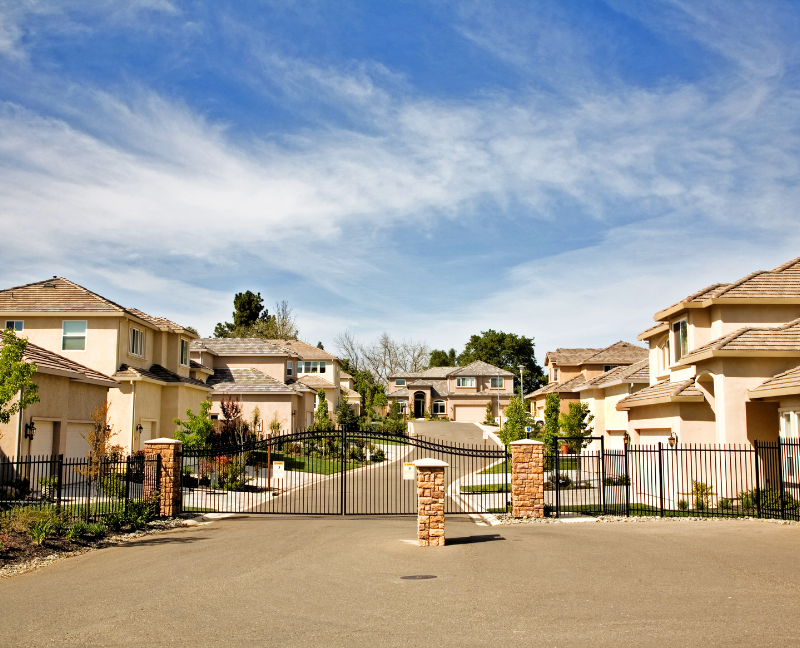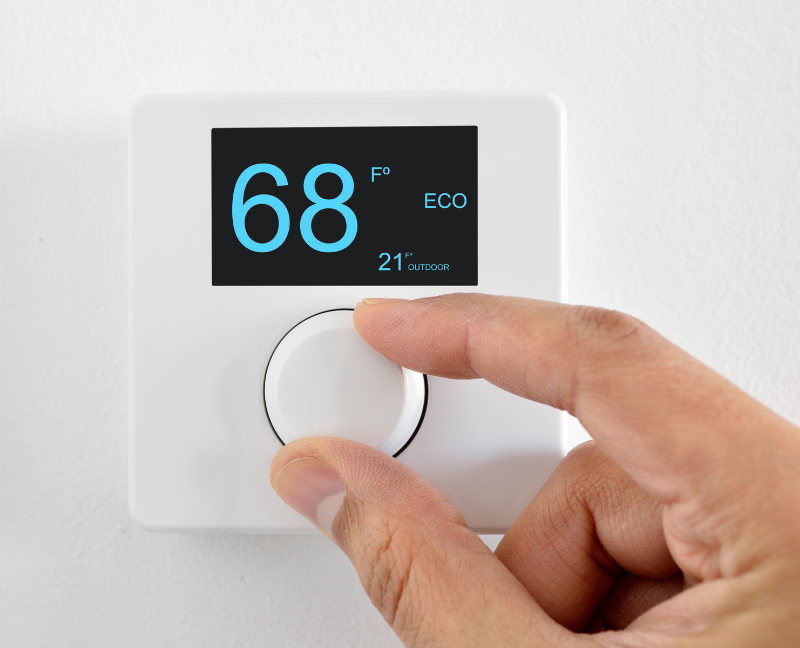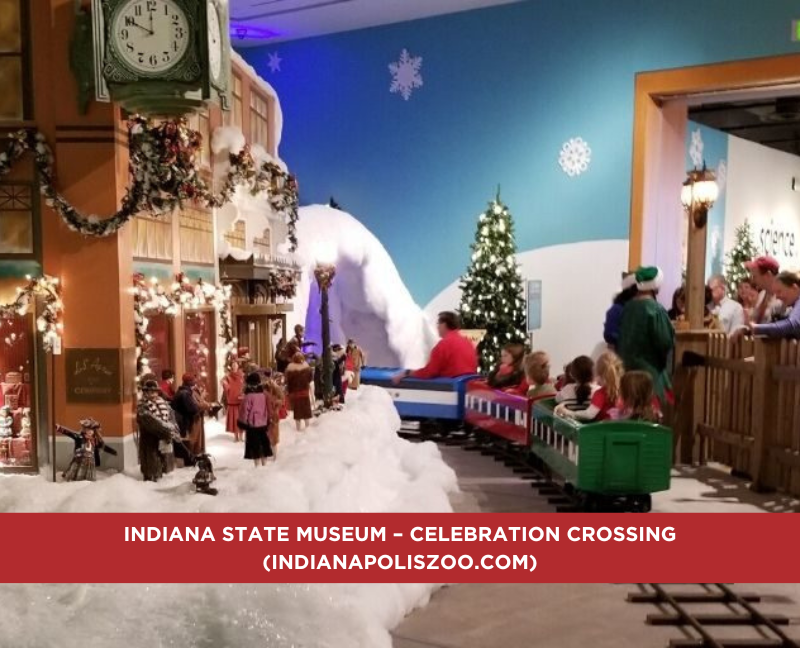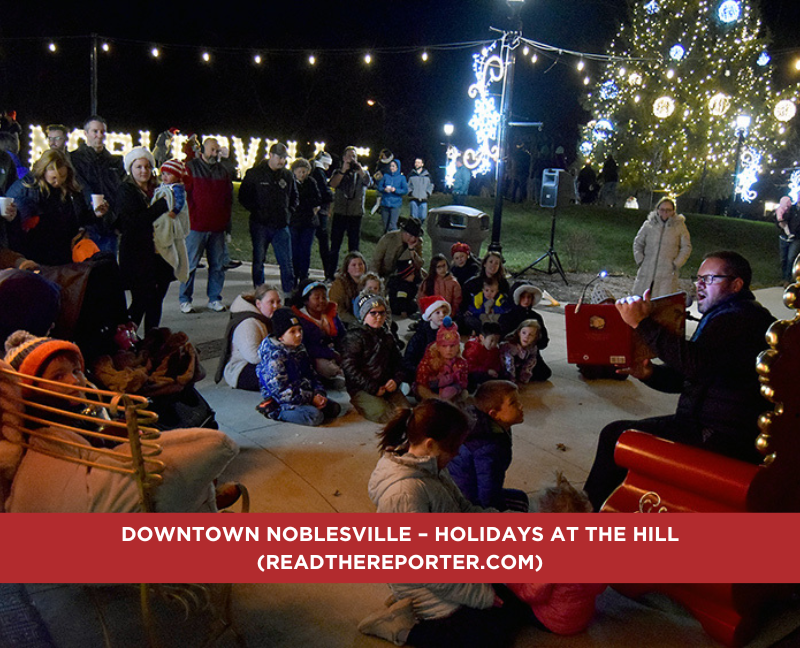Selling a home is not only a huge decision to make, but also a complicated process to take. If you want to simplify the journey while increasing your earning potential, the key is to get yourself ready.
Wondering what those questions are?
Don't worry! In this post, we've compiled all the questions you should ask before putting your property on the market.
Have you considered putting your house up for sale soon? Before moving on to the next step, you must ensure you have answered these essential questions about selling a house.
Below are the following questions about selling a house:
Selling your property is possible year-round, but some months are more accessible, faster, and more rewarding. Home buying is highest in spring and summer and lowest in fall and winter.
Selling your home in June, May, or July maximizes house profits. Homes sold in June and May earn 9.2% and 7.4% more than average. The day you list your home matters, too, according to data. On Thursdays, homes sell faster and for more money.
However, real estate is very localized, so the ideal selling period depends upon your market and homeowner's situation. Think about:
The time to sell depends on location and housing market conditions. Listing price, home condition, and marketing and staging skills also matter. According to NAR data, the average home is on the market for 62 days. It varies widely by state. You should know how fast your home will sell in your market.
Condition and demand for similar homes impact your home's value. It would be best to look at comparable sales to estimate the value of your home. They should match your size and condition. These "comps" help a real estate agent price your home. Alternatively, an iBuyer might buy your house without listing it.
Selling a house has several costs. Many don't require an upfront payment, which is good. Instead, many come from closing sales revenues. Typical fees are 10% of your home's sale price.
These include:
Selling to an iBuyer, skipping the real estate agent, or selling as-is can reduce these fees. A home that needs lots of repairs will sell more slowly.

Many homebuyers want a "move-in ready" property with minor repairs. Younger buyers (76%) need a move-in ready house. Cosmetic repairs increase house value, so make repairs before selling.
Fix severe faults like a roof or AC unit, or boost your rate. Most purchasers won't pay top dollar if massive, expensive projects are coming.
Seller inspections speed up repairs. For a few hundred dollars, home inspectors can check for issues. The report can guide pre-listing repairs. This can increase property value and speed inspections. Your state may require inspection issues disclosure.
Using a realtor has its own perks and cons. One advantage when working with a real estate agent is that they can help you sell your home faster. Listing, photography, showings, marketing, and closing are some of their services that can make your home-selling journey easier and smoother. They also have local market data to assist you price and marketing your home properly.
Pro Tip: Before hiring a real estate agent, be sure to research their services first. Look at past customer reviews to ensure they can provide the service you want. You may also seek referrals from family, friends, and coworkers.
A seller can inspect your home before listing. Some sellers do this, but it might help you prepare your home for sale. Even if you do, a home inspection is usually required after you accept an offer. After hiring a local inspector to assess their property, the buyer may request that you credit them for a few repairs.
The thing is, you may not be able to sell your home immediately. If that's the case, the first thing to check is the pricing as it may be overpriced for the market. Try to adjust the listing price based on recent similar transactions. Stage or fix any issues that prevent purchasers from buying your property.
Also, make sure your agent has marketing experience and local contacts. This boosts home visibility and sale potential. You may also remove the home from the market until local conditions improve.
As much as possible, you need to leave any fixture attached to the house. That might include built-in storage, shades, door hardware, etc.
However, if there's any installed appliance that you want to bring with you, you need to tell that to the buyer and state it in the contract.
Can you think of more questions to ask before selling your property? If yes, feel free to share them in the comments!
Winter holidays are the most popular period of the year to travel mainly because of its perks, such as lower prices, fewer crowds, and authentic experiences. However, an exciting trip might get ruined once you realize you forgot to lock a door or turn on the faucet in your rush to catch a flight.
Therefore, before you plan your next trip, learning tips on how to get your home ready for the holiday can help you enjoy a well-deserved break.
P.S. Click this link if you want a free downloadable checklist.
Below are easy yet helpful tips on how to prepare your home security, appliances, and housekeeping before a holiday vacation.
Before a weeklong vacation, prune your yard and shrubbery. Hiring a local lawn care provider regularly or bi-weekly may be ideal for long holidays.
Before vacationing in snowy places, clear or shovel your driveway. A snowy driveway without footsteps or tire marks may suggest no one is home. Expecting snow? A snow removal service may visit your property while on vacation to make sure that your driveway is clear.
Make a trip around your house to close and lock all windows and side and back entrances. Check pet doors for coverage and locking. As you leave, lock the front door.
Inform any neighbors remaining home for the holidays of your intentions and guests. They can phone authorities or warn you in an emergency or suspicious situation. They may also help with house-sitting chores like watering plants, collecting mail, and emptying garbage.
Close your blinds to make it hard for an unwanted guest to tell if your home is occupied. When planning a winter vacation, this can insulate your windows from the cold, reducing your heater’s workload.
Schedule outside lighting to highlight doorways and gloomy places around your property. This makes your house appear occupied and helps neighbors identify strange behavior outside. Motion-activated lighting lets you utilize it when needed instead of running the lights.
Leave a few modest lights on during your vacation to provide the impression of being home. Want to reduce electric consumption? Automation with digital timers would be more efficient and effective.

Arm your alarm before vacationing. Tell your provider about your travel plans and whether someone will be at your residence while you're away.
Ensure your doorbell camera works and shows anyone at your front entrance clearly. When you're away, a doorbell camera can protect your packages.
The welcome mat, door frame, potted plant, and other frequent areas to seek for spare keys are known by most individuals. Please offer your extra key to a house sitter, friend, or neighbor in case of need.
Junk mail and newspapers might accumulate while you're away, indicating an unattended home. Putting your mail and newspaper on hold is simple.
Automating your home takes two to three weeks, so prepare beforehand. Hiring a local home automation business may be worth it if you take an extended vacation or travel often. Smart home technology lets you control and monitor home security and appliance usage from your smart device.
Along with your primary home security, here are a few additional things you can do to make your home vacation-ready:
Before leaving, water indoor house plants, depending on the type and length of your trip. Have a friend, neighbor, or home sitter care for sensitive plants or longer getaways as needed.
We recommend leaving your pet with a friend or neighbor while on vacation if it needs daily food, walks, or medicine. You might also board them at a veterinary or pet-sitting service.
If you've taken all the required steps, hide your possessions upon departing. Keep valuables in a safe while on vacation. A well-decorated basement may need relocating valuables upstairs to prevent floods.
You won't have much hearty food left after wasting perishable stuff. If grocery stores and restaurants are closed, you'll be pleased to defrost a tasty lunch after your travels.
These are just some tips to help prepare your home for the holidays. Watch out for Tips For Getting Your Home Ready For The Holidays [Part 2] to learn more.
There are many reasons why people buy a house. For some, it's motivated primarily by security and safety, thus the consideration of living in a gated community.
Homes in gated communities are widely available for purchase around the nation, but why are they so appealing?
In this post, we'll try our best to answer why some homeowners choose a gated community.
Living in gated communities has many benefits. Although no area is 100% safe, those with heightened security offer many safety advantages.
The main reason individuals move to gated communities is safety. The gated community prevents thieves, vandals, and outsiders from coming easily. Since residents in a private neighborhood know one another, it's easy to spot strangers. And this contributes to a lower crime in the neighborhood.
Everywhere, speeding occurs. Drivers driving from busy main highways into quiet neighborhood lanes often speed or drive dangerously, endangering children and driveway backers. Before entering a gated neighborhood, cars must stop to assess the environment and lower their speed to residential limits. In most gated communities, speeding citations can be issued, making pedestrians and children safer.
Parents can relax in guard-gated communities with minor crimes and speeding. High security makes guard-gated neighborhoods safer for children and pedestrians. Safety is improved for joggers, bicyclists, dog walkers, and anyone who appreciates walking near roads without concern.
Safety is crucial in these communities. Controlled access means that only residents or friends of residents can enter a guard-gated neighborhood. Safety and security are increased by security cameras that record who enters and departs these communities. Gated communities reduce unwanted traffic and raise awareness of who comes and goes.
These neighborhoods have pleasant neighbors who enjoy socializing. Being neighbors builds trust, reducing daily worries about family and property safety. Gated communities hold parties and events that bring people together.
Additionally, most gated communities have an Architectural Review Board that strictly regulates home and lot design, building, and look. This prevents unattractive houses and neglectful neighbors. An unspoken agreement arises amongst gated community inhabitants. They help neighbors and look out for one another.
In complexes featuring community facilities like pools, tennis courts, and golf courses, restricted access and traffic create privacy. These neighborhoods are monitored more, allowing inhabitants to enjoy their pastimes secretly. Every member of the community wants privacy and gives it to their neighbors.

Each gated community offers luxury residences. Condos, single-family homes, and elegant villas built to high standards and codes are typical. Buying a home in one of these neighborhoods costs more, but it will be worth more when you sell it. Gated communities may increase in value due to their exclusivity, especially in areas where new homes cannot be built.
HOAs set covenants, conditions, and restrictions in gated communities. These requirements cover common area, amenity, landscaping, roads, and pathway maintenance. Gated communities' grounds are maintained due to higher standards—positive effects on property, value, safety, and community aesthetics.
Eco-friendly communities are sought by those who value living there. In many luxury gated communities, energy comes from solar, wind, and water. Green homes in these neighborhoods use eco-friendly materials and are energy-efficient. Living in such a neighborhood will save money on your electric bill and save the world. Living sustainably is healthy and good for the environment.
Gated communities frequently provide modern amenities for active lifestyles. As a resident of one of these communities, you'll likely have access to a contemporary gym, sports courts and fields, clubs, pools, and other amenities. Many gated communities have golf courses within or near the gates. Most fitness centers provide daily sessions and lessons to improve your game, remain healthy, learn something new, or do all the above.
The design and ambiance of a gated community are essential. These communities are usually built to be beautiful and valuable. They have many parks and open spaces for relaxation. Gated communities have well-kept landscaping year-round. Noise is low, and the environment is peaceful. Additionally, most gated communities have large bike and walking pathways for morning walks and evening cycling.
As mentioned, gated communities offer more than safety. The main advantage of a gated community is safety. Still, there are others, such as leading an active lifestyle, supporting an eco-friendly environment, enjoying quiet, and having a fantastic sense of community.
Living an environmentally-friendly lifestyle is sometimes misunderstood, mainly because it's costly, inconvenient, and demanding.
But in reality, choosing to live in a sustainable way is relatively simple; all it takes is one slight adjustment at a time to make a big difference. In this post, we’ll share some eco-friendly tips to help you get started.
The average home uses 9% of its energy on lighting.
Now, if you want to lower your energy bill and environmental impact from all your light bulbs, using LED bulbs is a cheap and easy alternative. It also provides high-quality light output and emits less heat, unlike standard bulbs, which might make your air conditioner work harder.
LED bulbs have also evolved to fit recessed lighting and dimming controls.
Not only are plastic water bottles uneconomical, but it's also harmful to the environment. Plastic production requires three times the water in a water bottle to make one, yet 80 percent aren't recycled.
So instead of constantly buying a plastic bottle, get a reusable, portable water bottle.
Not only will you save money by reusing a water bottle, but there will also be fewer plastic bottles needed.
The good thing about having recycle bins is that it makes you more aware of recycling glass bottles, jars, paper, and other objects. To simplify recycling and composting, have trash and recycling bins in more than just the kitchen.
Meanwhile, a compost bin will let you eliminate leftovers and give your plants free fertilizer.
Tip: Make sure that the compost bin has a tight cover and a secure hatch at the bottom for extracting fertilizer when ready to use to avoid pests.
Reducing meat consumption can create a significant impact on the environment as it helps reduce GWP emissions.
In case you didn't know, more than 30 percent of the Earth’s surface is being used to raise and support livestock.
“The livestock sector accounts for 9 percent of CO2 deriving from human-related activities but produces a much larger share of even more harmful greenhouse gasses. It generates 65 percent of human-related nitrous oxide, which has 296 times the Global Warming Potential (GWP) of CO2," according to research by the United Nations.
Other than the GWP gas emission, consuming fewer farm animals means having more land to use for recreation.
So instead of having meat-only meals, consider consuming more vegetables and seafood.
Choosing to live in an eco-friendly home setup doesn't mean leaving paper towels for good. It's about using old shirts or fabric for cleaning or drying instead of buying a dozen paper towels.
Regular toilet paper is not eco-friendly because everyone uses 100 rolls yearly.
If you want to switch to an eco-living lifestyle, you should use bamboo toilet paper for the sake of environmental sustainability since there are bamboo species that grow 36 inches in 24 hours.

Monitor and control your HVAC systems with a programmable thermostat. Smart thermostats lower utility bills and make homes greener. It also saves energy, which, for some, is the main reason to upgrade.
A smart thermostat lets you arrange your HVAC to operate less while you're away, saving you energy by cooling your home just when you're home.
You can set your digital thermostat to turn on right before family members arrive to cool your home to 72 degrees from the minute you enter. Nest claims 15 percent cooling savings and 10–12 percent heating savings.
Turning them off while leaving a room, especially when leaving the house, saves energy and money. However, the electricity saved by turning the electric lights off depends on the bulbs used.
For instance, incandescent bulbs are energy-inefficient. Before producing light, these lights convert electricity into heat. It provides 90% heat and 10% light. Thus, turning off incandescent light bulbs saves energy at home.
So if you leave your house for over 15 minutes, be sure to switch them off to save electricity. The method also extends CFL bulb life.
Meanwhile, LED bulbs won't be affected by turning them on or off.
One of LED lamps' key features makes them perfect for residential energy conservation. They can also be turned on and off automatically and brightened instantaneously with sensors.
Energy Star estimates that washing machines consume 90% of their energy to heat water. Washing with cold water can reduce carbon dioxide emissions by 1,600 pounds annually.
Instead of heating, run your washing machine on cold. Not only does this cut carbon dioxide emissions, but it also preserves your garments, as hot water can fade colored clothes.
Unless you have oil stains, there's no use in washing on hot. You can try warm water if cold doesn't work. Still better than hot water; it cleans better than cold water.
The EPA found that dryers use more energy than refrigerators, washers, and dishwashers, and line drying can cut primary appliance energy use by one-third.
Fresh-air line-drying is remarkable. Also, drying clothes and bedding on a rack outside instead of in the dryer will prolong their life. Establishing a drying rack on your balcony and opening the windows will let the sun dry your clothing faster if you don't have a garden or backyard.
Home cleaning supplies contain the most potent bacteria-killers. These products are designed to kill almost all organisms. Man-made poisons harm the ecosystem and kill animals and plants once they enter our waterways via sewers, and these are just some of the reasons why opting for natural cleaning ingredients is a must.
Using organic cleaning products might be a better option but it can be costly. What you can do instead is to use DIY cleaning products made with vinegar, baking soda, and lemon juice. Not only is this eco-friendly, but it also helps reduce packaging waste and household chemical pollution.
Canvas bags replace inefficient plastic and paper bags at most stores. Although canvas bags are inexpensive, they are convenient. Canvas bags are more robust, hold more than plastic or paper bags, and help store and transfer objects.
Even if you don't use canvas bags, reusing plastic bags benefits the environment. Put plastic bags in tiny trash cans around the house or recycle them. Every little bit helps.
These are just some ways to make your home eco-friendly. Watch out for Part 2 to learn more tips.
In exploring "Questions About Buying A Home," the initial considerations include establishing a housing budget within 25% of monthly income, optimizing a 5–10% down payment, and understanding the nuances of closing costs.
These financial insights, strategic planning for moving costs, and mindful choices in furnishing and decorating lay a solid foundation for informed and responsible home buying.
So, in this part, let us continue discussing the questions to ask about buying a home.
If you've never lived in a hurricane-prone area, you've probably never had to defend yourself. Ask if your new home is prone to tornadoes, floods, wildfires, earthquakes, or ice storms. Then, make sure your house insurance covers local natural disasters. You may require extra coverage if not.
It’s hard to answer this problem independently; you need a house inspection before buying. Your seller must report known issues, although they may leave something out.
A good home inspection will explain the safety and performance of the roof, foundation, HVAC, and plumbing systems safety and performance. If there are red flags, you can pass or negotiate a cheaper price and solve the issues yourself.
Asphalt roofs last 20 years, according to most experts. So, ask this critical roof inquiry before buying a house: How old has the roof been there?
Replacement of an aging roof might cost over $12,000. A sudden replacement might ruin your budget.
Imagine getting into your new home and discovering all the appliances are broken. You can avoid such a surprise if you know certain essential appliances are dying before buying the house. The vendor may also offer a good deal.
Ask about the lifespan of all house items and when the old or worn-out items will be replaced. This includes the HVAC, water heater, washer, dryer, fridge, stove, and dishwasher.
Since different states have varying regulations regarding what must be included in a property purchase, you must find out what is included with the house you purchase. Don't automatically assume you're buying every light fixture, appliance, and window covering when submitting an offer. If so, you can become unhappy when the refrigerator is gone, and there's a large empty area in the kitchen.

You should know what nearby similar houses are in the market. This will help you know if the home you seek is reasonably priced. You can get the answer from your real estate agent since they will be intimately familiar with the types of homes currently for sale in the neighborhood where you are looking to buy. And just so you know the technical terms, this is a competitive market analysis (CMA).
Find out why the seller is selling their home. Knowing their motivation in selling their property might help you negotiate.
For instance, sellers leaving because of a new job may be more likely to negotiate a price to sell it faster. Probing them can also help you learn more about the quality of the house.
It's a red flag if the seller can't clearly state their reason for moving or selling their home, such as looking for a bigger house or wanting to live close to their families.
Usually, when a home has been listed on sale for a longer time, it means that there might be an issue.
When a home is listed on the market for a long time, it might mean that there's an issue. Usually, it's because the asking price is too high, its location, or the home's layout.
In March 2023, U.S. residences averaged 54 days on the market. now, this number might be different depending on the location and season. Ask your real estate agent about house sales speed in your market—every market is different.
Conclusion
These are just some of the most important questions that you might ask regarding the homebuying process. There might be more as you go along the way. The key is asking as many questions as you can to your real estate agent and/or the seller before closing the deal.
Do you have more questions about selling or buying a home? If yes, feel free to drop them in the comments or call us at 317-316-8224 we can assist you!
The holiday season has officially started, and if you're looking for activities that would make your family weekend more fun and exciting, you're in the right place!
In this post, we've gathered all the Indiana holiday family events you can visit to make this season of giving happier and more memorable.
November 10 to January 6
Indiana Historical Society | 450 W Ohio St, Indianapolis, IN 46202
The Festival of Trees offers more than 75 exquisitely decorated trees in a winter paradise portraying Indiana companies, organizations, and individuals.
November 10 to December 31
Indiana State Fairgrounds | Indiana State Fairgrounds, 1698 E
For the 2023 holiday season, Indianapolis will host Christmas Nights of Lights once again! Families will experience a mystical drive through a coordinated display of over a million lights set to contemporary and classic Christmas music that plays directly via your car's sound.
To learn more about the ticket prices, you may click this link.
Starting November 17
Ellis Park | 600 E Main Street, Danville, IN 46122
Another drive-through experience, Danville's Winterland Holiday Light Show in Ellis Park features hundreds of displays with thousands of lights to celebrate the holiday season.
Ticket prices vary; on weekends, admission is $10 per car, while during the week, it is $5 per car.
Learn more about it here.
November 18 to December 24
Between The Palladium and The Tarkington Theater | 10 Carter Green, Carmel, IN 46032
This year, Carmel's Chriskindlmarkt is returning and delivering the European festive vibes. Products from Germany and other German-speaking European nations are so good and authentic here, that you won't feel like you are in Carmel, Indiana.
Don't forget to take in the stunning outdoor ice skating rink!
Note: Carmel Christkindlmarkt is closed on Christmas Day. You can view their schedule here.

November 18 December 30th
Indianapolis Zoo | 1200 W Washington St, Indianapolis, IN 46222
Remarkably, tourists have been enjoying Christmas at the Zoo since 1967.
General admission includes access to "Santa's Village" in the Bicentennial Pavilion, where you can participate in activities such as a visit with Santa Claus, a stop by Mrs. Claus' Kitchen, a look at Santa's infamous sleigh and reindeer at Santa's Barn, an adult-only Tinsel Tavern, the Penguin Encounter, and their Polar Pathway.
Check out their event map and other details here.
November 18 to January 15
Eiteljorg Museum | 500 W Washington St, Indianapolis, IN 46204
This one-of-a-kind Hoosier holiday tradition is an exciting attraction for kids and kids at heart.
It features nine model trains that wind across a miniature festive scene at Jingle Rails, a "G-scale model train wonderland." It strolls among different locations, such as the Monument Circle, Union Station, Lucas Oil Stadium, Eiteljorg Museum, Grand Canyon, Yosemite Falls, Old Faithful, the Las Vegas Strip, Hoover Dam, and Mt. Rushmore.
Learn more about it here.
November 18 to February 11
Children’s Museum | 3000 N Meridian St, Indianapolis, IN 46208
A brand new exhibit opened at the Child's Museum, and it's no other than the WinterFaire.
Replacing Jolly Days, this fantastic indoor environment comes with a lively, carnival-like ambiance, entertaining games, endearing animals, and interactive experiences.
Enjoy this unique winter experience together while you play, laugh, and create lifelong memories.
Go to the event website to find out more.
November 19 to January 7th
Newfields | 4000 N Michigan Rd, Indianapolis, IN 46208
For most families, taking in Winterlights at Newfields has become a yearly event, and if you're one of them, you might be glad to know that it's back.
Meanwhile, if you haven't experienced it yet, here's your chance to see more than a million and a half lights sparkle in The Garden during Winterlights.
Learn more about the events and ticket prices here.
November 24 to December 23
Sullivan Hardware & Garden | 6955 N Keystone Ave, Indianapolis, IN 46220
The Sullivan Express is a well-liked holiday mainstay in Indianapolis that offers a delightful train excursion for families to visit Santa at the North Pole. A guided train ride to the North Pole awaits you when you check in at Central Station.
You and your children get to see and take pictures with Santa Claus himself as he gets ready for his big Christmas Eve present delivery. You also get to play in Santa's workshop.
Expect surprises along the way!
Check out their time slots here.

November 24 to December 31
Indiana State Museum | 650 W Washington St, Indianapolis, IN 46204
Take yourself and your family to the magical world of the holidays at
Celebration Crossing, Indiana State Museum.
Enjoy the highlights of Celebration Crossing this year, including visits with Santa, meeting his reindeer in the Reindeer Barn, Magical Mornings, Santa's Holiday Breakfasts, Winter Wonderland Workshops, and more.
This year, take the Snowfall Express, an enjoyable ride that will take you to "a forest populated by charming, whimsical characters celebrating the coming winter and the first snowfall."
Learn more here.
November 24 to January 14
Monument Circle | 1 Monument Circle, Indianapolis, IN 46204
The Circle of Lights on Monumental Circle in downtown Indianapolis comes to mind when one thinks about Indianapolis during the holidays.
This year marks the 61st year the lights have been turned on, which always happens the day after Thanksgiving.
Before the grand finale, there will be musical acts and performances throughout the traditional televised show on WTHR. Afterward, Santa Claus will turn the monument's lights on, and they will stay bright until January 14th.
Starting December 3
Greenwood Amphitheater Park | 300 S Washington St, Greenwood, IN 46143
Take a stroll through Amphitheater Park and enjoy the festive lights! You can make this a new holiday custom with your family as you take photos and create memories together.
Enjoy wonderful attractions, such as the 3600 lights on the bridge, the 12-arch candy cane tunnel, and 85 light trees!
December 21 & December 22
Conner Prairie | 13400 Allisonville Rd, Fishers, IN 46038
Every member of your family will enjoy themselves at Conner Prairie's yearly Merry Prairie Holiday.
Take part in all of your favorite regular activities, such as the 150-foot Polar Bear Plunge tubing hill with a new light tunnel to take you through, the historic Prairietown, the gorgeous light displays, Kringle's Carousel, and Trinket Puddingmoon featuring Santa's official naughty or nice list.
This year, the William Conner House will transform into a 3D projection mapping holiday production, showcasing "Twas The Night Before Christmas," creating nostalgic festive vibes.
Don't miss the Winterland stroll where you may travel from the 1836 Prairietown to the 1863 Civil War Journey under a brand-new set of holiday lights.
To Be Announced
Mulberry Fields Park | 9645 Whitestown Rd, Zionsville, IN 46077
Mulberry Fields Park in Zionsville is transforming into a wintry paradise in preparation for Winterfest.
Experience the nostalgia of ice skating and stroll through the festive town to eat and take in live entertainment.
You can also go sledding and make a wreath!

To Be Announced
Federal Hill Commons | 175 Logan St, Noblesville, IN 46060
Go above and beyond this holiday season at Federal Hill Commons, Noblesville as you enjoy a private carriage ride, go ice skating on Market Plaza, explore the walking light display, and leave a note for Santa in a designated mailbox at the Christmas Cottage, to name a few activities.
Everyone has access to their snacks and beverages so you won't get hungry.
Learn more here.
Did we miss anything? If yes, feel free to share your favorite Indiana holiday events in the comments below.
Have you started planning your holidays? If not, then this is your sign to begin thinking about the things you'd do and not do over the upcoming season.
As a realtor, it makes sense to plan your schedule ahead of time so you'll know when to accept meetings, take a break, visit families and friends, and many more.
Now, while having flexible timetables is one of the many perks you have as a real estate agent, learning the do's and don'ts for the coming holiday can help you understand your client's schedules and improve your business as well.
You can use the best time of year while growing your real estate career. And to help you balance work and the holidays, below are the real estate do's and don'ts for you:
Nothing strengthens an agent's and client's relationship more than assisting them during this season, such as with a Christmas Eve home closing. By doing this, you'll gain significant brownie points that you may exchange for recommendations and repeat business.
Take advantage of the free time you have if your business is slow during the holidays. Since this time, most of your clients may be enjoying themselves rather than buying or selling a house, you can use this time to respond to emails, work on long-standing tasks, and generate fresh concepts.
You can prevent inadvertently arranging showings or meetings with major events by marking down must-attend occasions like your friend's New Year's Eve party or the dinner at your in-laws. After all, balance is everything. As much as you value work, it's crucial to take a break and have some personal time, too.
This season of giving is the perfect time to show appreciation to the ones who helped grow your business, and you can do this by simply sending holiday greeting cards to your clients. You can send one for Christmas and another for the event that your clientele observes.

Any clients you work closely with, including active buyers and listings, should be aware of your availability and time off. Building trust with your clients involves being open and truthful about your time off, which they will typically accept.
After all, having a chance to spend time with family and get involved in your community was one of the reasons you decided to pursue a career in real estate. Cherish the significant occasions in life, such as tucking your children into bed on Christmas Eve or any other time that holds the most important meaning for you.
Maintain concentration during the hours that you are working. Use your working hours to your advantage so that the time you must spend away from the holidays is not wasted.
Conclusion
Learning the do's and don'ts for real estate agents can help make your holiday season more worthwhile. While your work may be a priority, having a two-week vacation or even a couple of days to spend with your family doesn't mean abandoning your clients. After all, having a work-life balance is essential to help you personally and professionally.
What are your plans for the holidays? Feel free to share them in the comment section!
The holidays might be exciting, but it can also be a stressful and expensive time of year. On top of this, decorating your home for the first time can be challenging.
If you want a home makeover on a budget, this post will share some DIY holiday transformations without spending so much.
Below are the following four tips you may consider if you want a makeover on a budget:
Putting together a neutral base of decorations is one way to reduce the likelihood of replacing pricey, on-trend pieces every year.
Pieces with a natural theme, snowflakes, and string lights are typically accepted and deemed ageless. In addition, you might consider sticking to a color scheme consisting of white, silver, and gold. By having a theme, you can avoid the potential temptations of impulsive buying while maintaining flexibility for possible future living arrangements.
Decorations are added to be... well, decorative. However, owning beautiful items for the sake of being beautiful may quickly turn into pricey clutter that you dislike keeping in a closet all year long, only to pull out and place on an end table. That said, checking for items that can serve multiple purposes can help you save money. For instance, instead of buying more holiday-specific gift wraps, use gold gift bags and white tissue paper for birthdays, bridal and baby showers, bachelorette parties, and wedding gifts.

Purchasing new items annually may be the best option if you don’t have enough storage space, and you can do a home makeover on a budget if you consider doing this. These days, fake trees are relatively easy to disassemble, and any rough parts on the tree may be covered up with additional garlands and decorations.
Since your tree will take up the same amount of room every year, adding to a collection of modest decorations won't affect your space as much as a tiny village or snow globe collection. Hanging Christmas cards from a fishing wire hanger on the wall is an additional space-saving method of bringing cheer.
Have fun as you establish roots—whether alone or with a family, in your present residence, or one that awaits you down the road—you'll be honing your sense of style and perfecting your home decor.
You may more successfully scan post-holiday clearance discounts and put new scores aside from your existing likes if you have a long-term vision. Setting long-term goals gives us everything to look forward to in both personal finance and design. Remember that you need to be patient and trust the process.
The key to success in doing a holiday makeover on a budget is a classic approach, considering decoration utility, storage limits, and a long-term goal. Holiday decorating should emphasize simplicity, functionality, and long-term vision.
Buying a home is all fun and games until you buy a home. It costs a fortune, has too many decisions to be made, and isn't easy to even know what to search for.
So before you start the home-buying process, it's crucial to do research and ask as many questions as you can.
Not sure what questions to ask? Don't worry! We've made it easier for you.
We've put together a list of questions to ask when buying a house to make you feel more at ease about the process.
This is the first question about buying a home since having an appropriate house budget avoids overspending on a home. Being saddled with a hefty monthly payment you can barely afford is disastrous and might lead to a huge debt. You must own your house if that happens.
Therefore, when determining your budget, it's practical to limit your mortgage payments to 25% of your monthly income. Thus, your budget will have the capacity for additional financial goals like retirement investing each month.
The 100 %-down plan is excellent for home buying as well as buying a house in cash. Aim for a 5–10% down payment on your first property if you intend to get a mortgage. A higher down payment reduces monthly payments, debt, and risk. After waiting a while and saving 20%, you'll avoid private mortgage insurance (PMI), leaving extra monthly money in your budget.
You can consider a 15-year fixed-rate mortgage if you buy a house. Stop taking 30-year loans since they increase debt and interest. Stay clear from adjustable-rate mortgages, FHA loans, and VA loans—they include hidden expenses.
Closing costs are typically 2–5% of your home's buying price. Closing costs for a $300,000 home are expected to be $6,000–15,000. Save enough for closing fees in addition to a down payment.
Local movements are less expensive than long-distance moves, varying significantly depending on the distance traveled. Verify your finances to make sure you have enough saved to cover unforeseen expenses.
If you're moving for a job, your new employer may offer a relocation package to cover your costs—64% of employees received relocation reimbursement in 2022.

This depends on the money you have for furnishing. If you purchased a fully furnished property, you're lucky; if not, you need to plan for decorating and furnishing your home.
This may be as simple as moving your furniture to your new home or buying new items.
When purchasing items, only buy new or old furniture you can afford to pay cash for. Adding consumer debt to a mortgage is one of the most costly home buying mistakes. Decorating one area at a time can help you meet your financial goals.
Asking about location is essential. You should know various things about an area before moving in, including:
Gaining some understanding of these details can assist you in determining whether a particular area or community best suits your needs and objectives.
Having kids makes asking about the school districts near your future home important. But if you don’t have kids, a property near good schools may be worth more when you sell your home in the future.
These are just some of the questions you can ask yourself before getting a new home. We have more questions in the next part, so be sure to click this link.
Auto racing is popular in Indiana, and the famed Indianapolis 500 is held at the Indianapolis Motor Speedway. However, the Hoosier State is also known for its safety, comfort, good education, entertainment, and standard of life.
These are just some of the reasons why it is a great place to settle in, especially for families seeking peace and friendship.
In this post, we will talk about the advantages of living in Indiana suburbs and the best suburbs to check out.
Indiana suburbs offer beautiful places to raise a family or retire for many reasons. Living in Indiana suburbs has several advantages, such as:
The suburbs in Indiana are more affordable than other US areas. Low housing costs allow young families and elders to live well without debt.
Indiana suburbs are as distinguished for their excellent education as the metropolis. The suburbs include some of the state's best schools, making them ideal for families.
Indiana has many parks, lakes, and natural reserves for outdoor fun. These natural areas are easily accessible to Indiana suburbs, making hiking, boating, fishing, and camping easier.
Due to low crime rates, the suburbs in Indiana are safe and secure. Thus, they are safe for family life or retirement.
Many people move to Indiana suburbs for their great communities. Many neighbors know each other by name, and there are many possibilities to socialize and have fun.
Indiana is a good starting place for exploring Illinois, Michigan, and Ohio due to its central Midwest location. Many suburbs are near major roads, making travel easy in Indiana and beyond.

Below are some of the best Indiana suburbs for families.
If you're considering moving to Indiana, you should put one of the following suburbs below on your list:
It is known for its secure streets, pleasant neighborhoods, and excellent schools. Families love Carmel because of its many restaurants, shops, and cultural attractions. Several times, the city has been recognized for its environmental efforts.
Hamilton County's Fishers is a great suburb. It has upscale neighborhoods, safe streets, and top schools like Carmel. If your family enjoys museums and outdoor activities, Fishers is a great spot to live. One of Fishers' most popular annual events is the Freedom Festival.
It is a lovely modern suburb, and it is known for having a high quality of life, excellent schools, and beautiful homes, making it a desirable area to live. Zionsville has a lively downtown with stores, restaurants, and cultural events. The community preserves its natural beauty with many parks and pathways for families.
That's a charming tiny suburb. It is well known for its immaculate homes, low crime rate, and excellent educational program. Westfield has many trails, parks, and cultural events for families. The city offers many environmental programs to show its commitment to sustainability.
A typical American suburb in Indiana is Brownsburg. Beautiful homes, low crime, and excellent schools have made this spot famous. Brownsburg's trails, parks, and cultural treasures inspire family outdoor fun. Several programs are also encouraging new businesses to locate in the community.
The suburb of Avon is small. Its excellent schools, low crime, and beautiful housing make it famous. Since Avon offers many parks, trails, and cultural sites, families may enjoy the outdoors. The city values citizen participation in municipal affairs; thus, it sponsors several community engagement programs.
Which Indiana suburb do you like the most? We'd love to know your thoughts in the comment section!

8313 W. 10th St
Indianapolis IN 46234
dennis@indyhomepros.com
317-316-8224